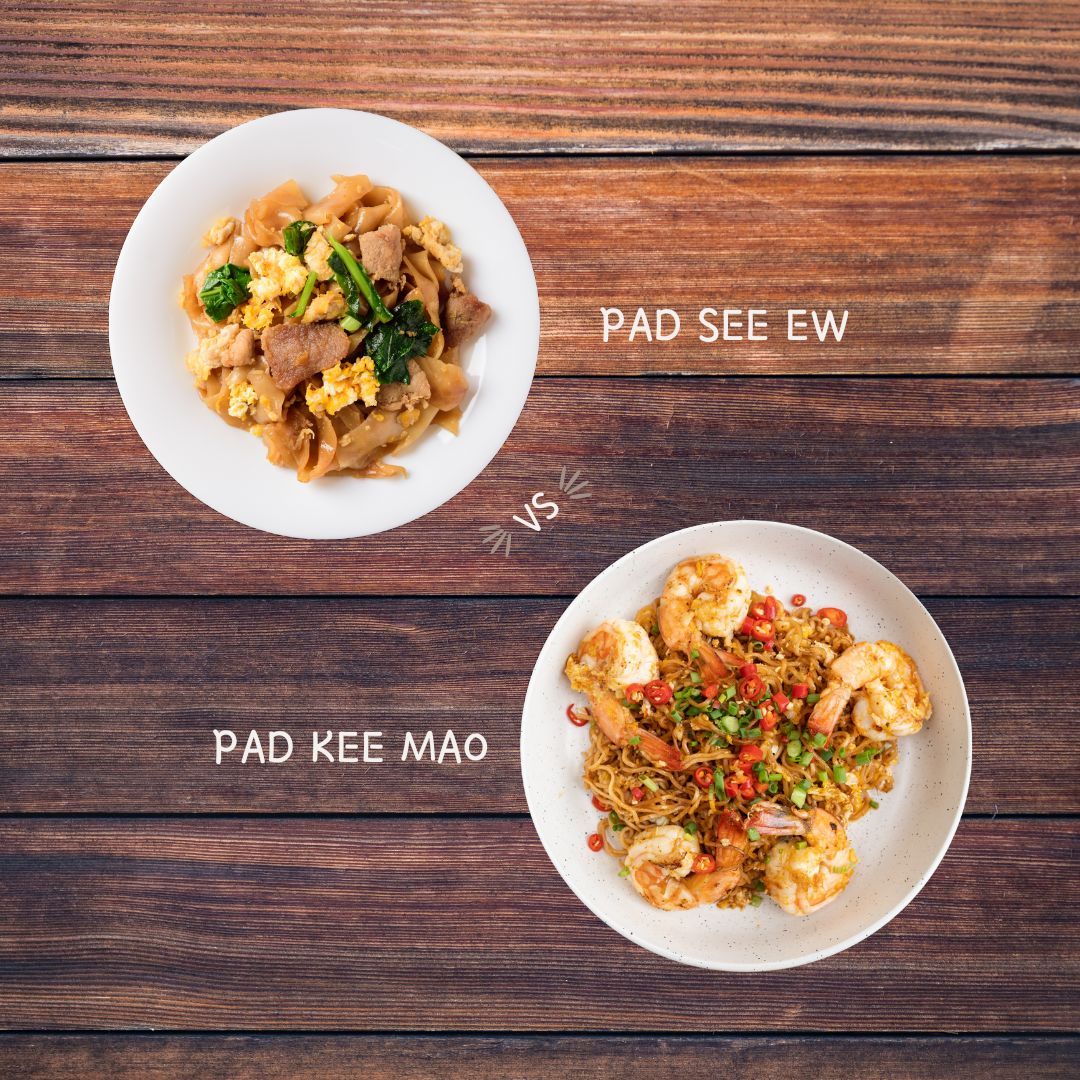
Pad See Ew vs Pad Kee Mao Tastylicious
The Main Difference: While Pad See Ew uses soy sauce as its main ingredient, sauce that is the combination of tamarind paste, fish sauce, lime juice, and sugar is the key player in Pad Thai. Both of these Thai dishes contain some kind of sauce that gives them their unique flavor profile. However, because of their different ingredients, as well as the slightly different cooking process, the.

Difference Between Pad Thai and Pad See Ew
Pad See Ew and Pad Thai are stir-fried noodle dishes typically made with vegetables, noodles, and sometimes meat. And the best part is that you can easily make each meal vegan or vegetarian. Pad See Ew is made with wide, flat rice noodles, while Pad Thai is made with thin, flat rice noodles. Additionally, each dish's sauces and thai spices.

Pad Thai and Pad See Ew are both Thai stirfry noodle dishes are some
Pad See Ew - the popular Thai stir fried noodles straight from the streets of Thailand made at home! While Pad Thai is sweeter and nuttier, Pad See Ew is salty, balanced with a touch of sour and a wonderful chargrilled flavour which you can create at home!. This is a reader-favourite recipe included by popular demand in my debut cookbook "Dinner"!
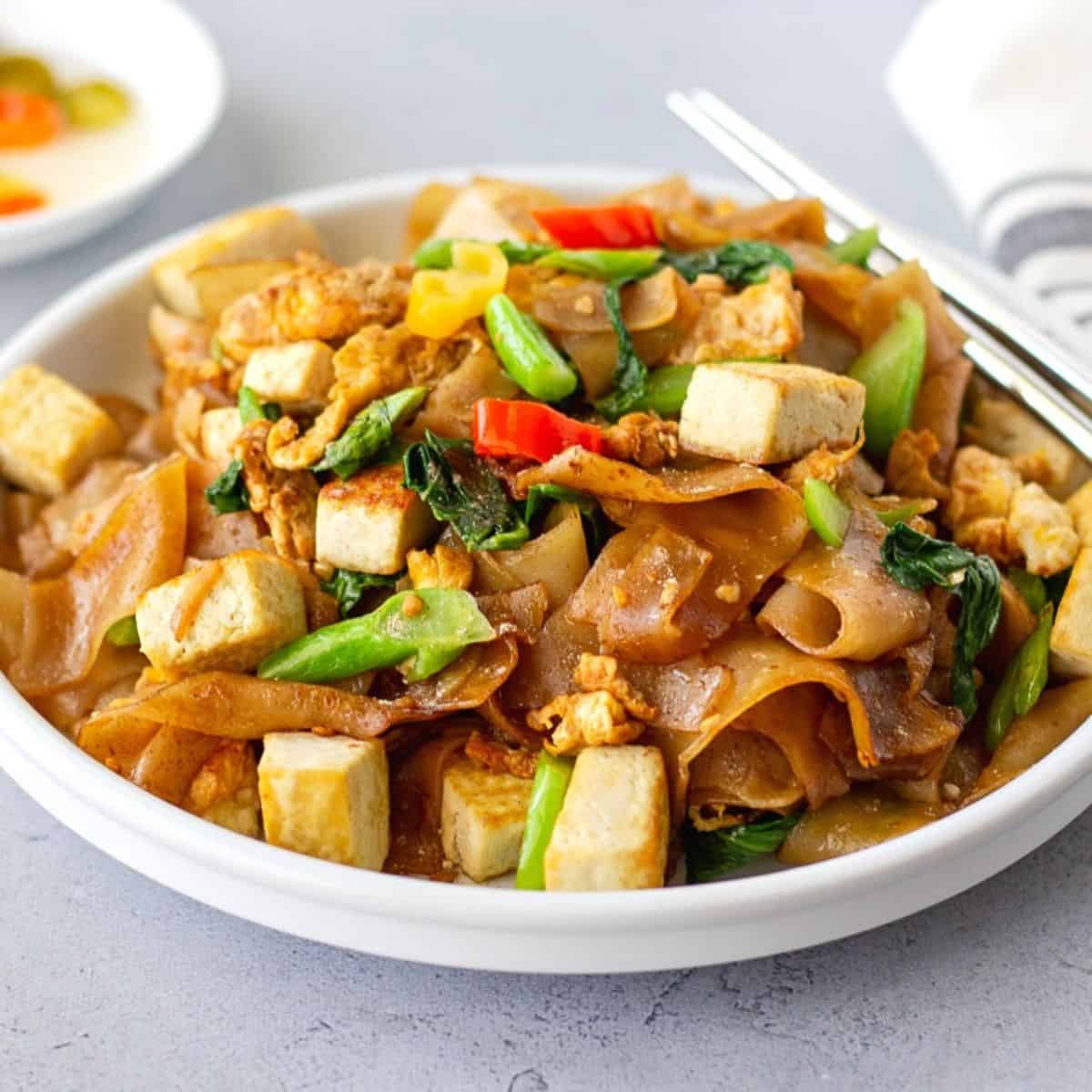
Vegetarian Pad See Ew Thai Caliente Thai Recipes
Add the beef back to wok. Push the mixture to one side to let the empty side of the wok heat for 10 seconds. Add another tablespoon of oil to the wok, and add the beaten eggs. Wait 5 seconds for them to begin to cook. Scramble the eggs for another few seconds, breaking them up into smaller pieces.
:brightness(2):contrast(2):rgb(2,-2,0):sharpen(0.2,0.2,true)/comau/recipe/Q_PDt9quItJsb5sAtioD/a3fe3f09a1afb12f9d79506bf7c270.jpeg)
Pad Thai Recipe
The thing that makes the difference to Pad Thai sauce is the tamarind. That and the crushed peanuts give pad Thai its lovely savory, sour, hot spiciness. Pad See Ew, on the other hand, relies on soy sauce rather than tamarind. The ingredients for Pad Thai sauce include brown sugar, fish sauce, oyster sauce, and tamarind, and it's the tamarind.
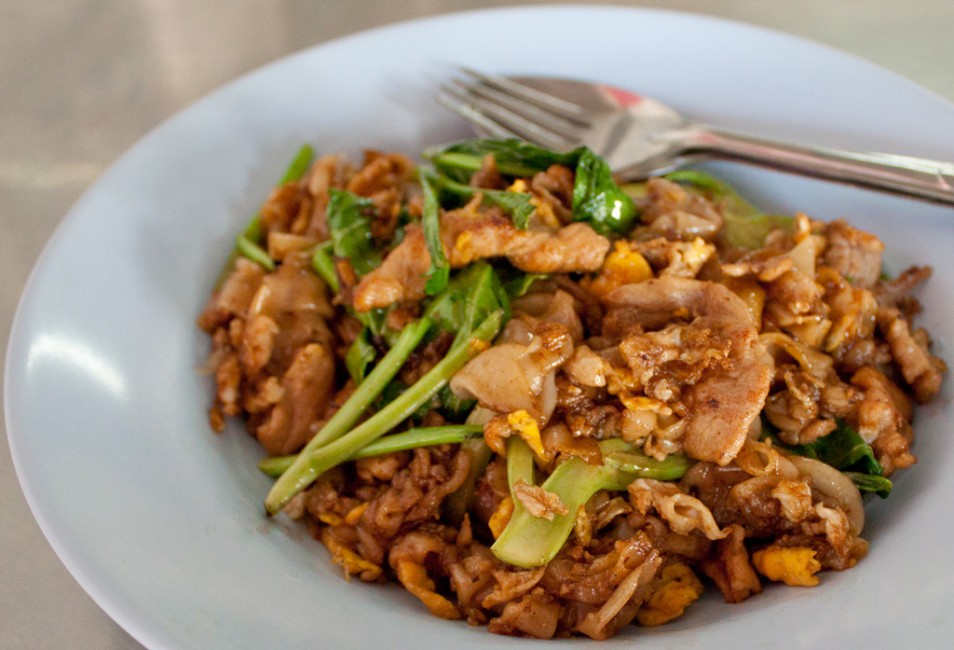
NotSoFamous Thai Noodle Dishes » Temple of Thai Food
This gives pad kee mao a sweeter flavor than Pad see ew. I mentioned that the difference between these two dishes is the sauce due to the absence of oyster sauce in Pad see ew. In pad kee mao, the sauce contributes to the sweeter taste, whereas in Pad see ew, the sauce contributes to the savory flavor.
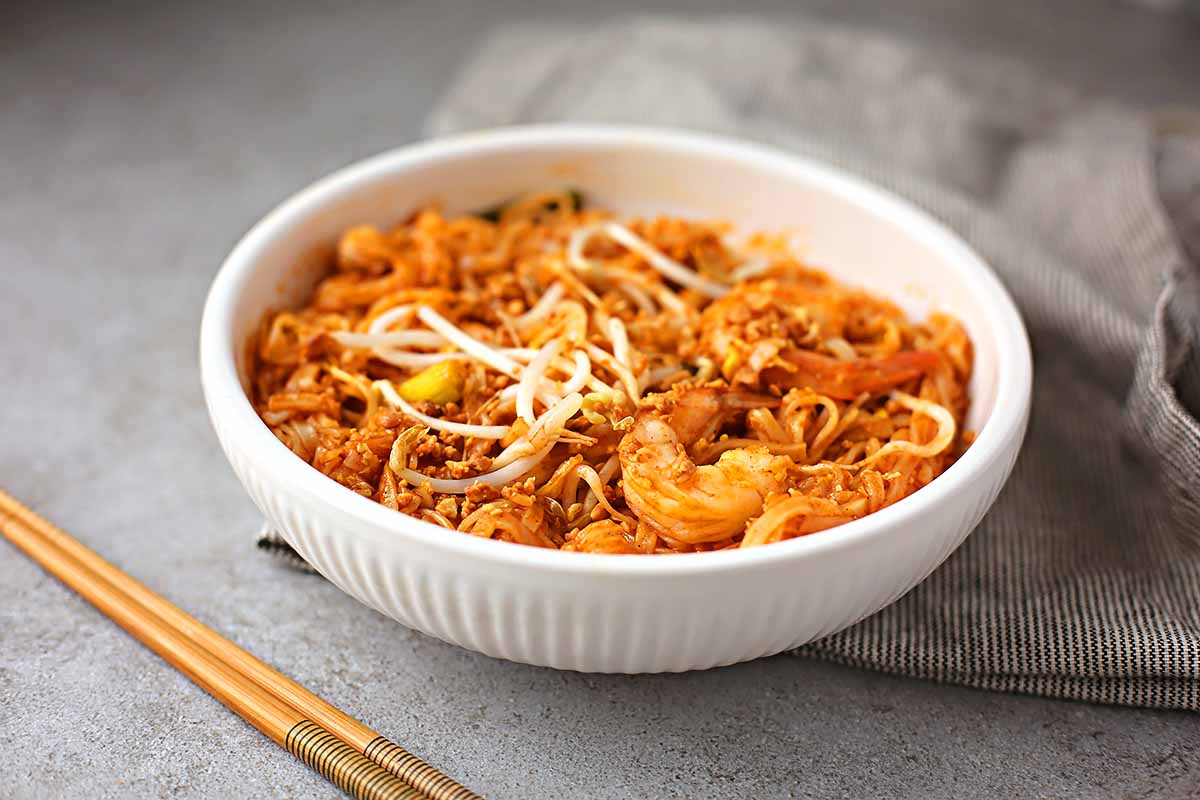
Chow Fun Vs Pad See Ew DeKookGuide
When comparing pad see ew vs. pad thai, their most significant difference is the taste and the noodles used. The first dish, pad see ew utilizes soy sauce, beef, and Chinese broccoli in its recipe. The overall dish has a salty and savory taste with just a hint of sweetness. The rice noodles are of a wide and flat variety.

Difference Between Pad Thai and Pad See Ew
Kway Teow means rice noodles in Chinese (the dish was inspired by the Chinese), Pad means fried, and Thai refers to the region. Pad See Ew is actually known authentically as Phat Si Lo and is also adapted from a Chinese recipe. Pad means fried. See Ew refers to the soy sauce as an ingredient. Phat is another translation of what is often.
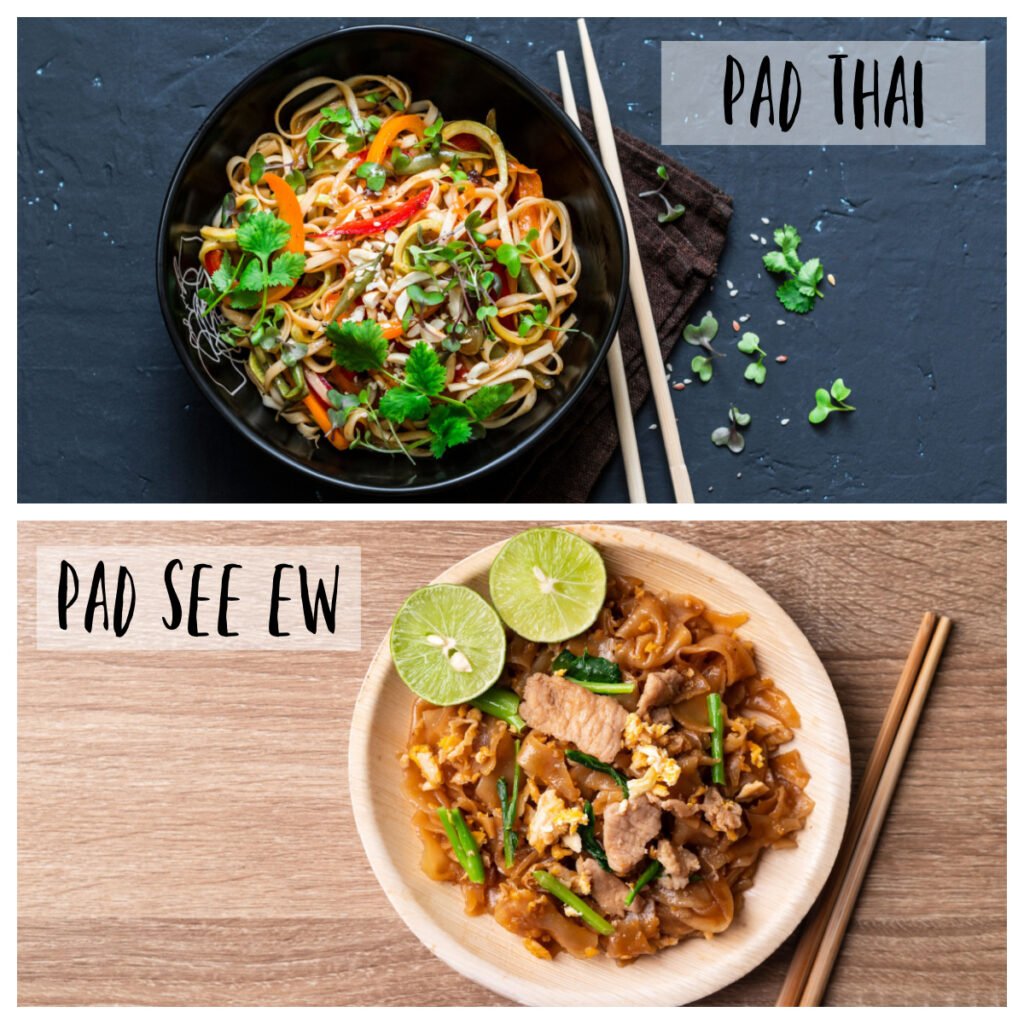
Pad Thai Vs Pad See Ew What Is The Difference? Tastylicious
Another difference between these dishes is in the sauce. Pad Thai sauce is made with tamarind, a sweet and sour flavor. It can also be described as a tangy lemon. Pad See Ew is made with soy sauce with a salty and sweet flavor. The toppings of Pad Thai have a mixture of vegetables and beef, chicken, or pork. Similarly, Pad See Ew is made with.
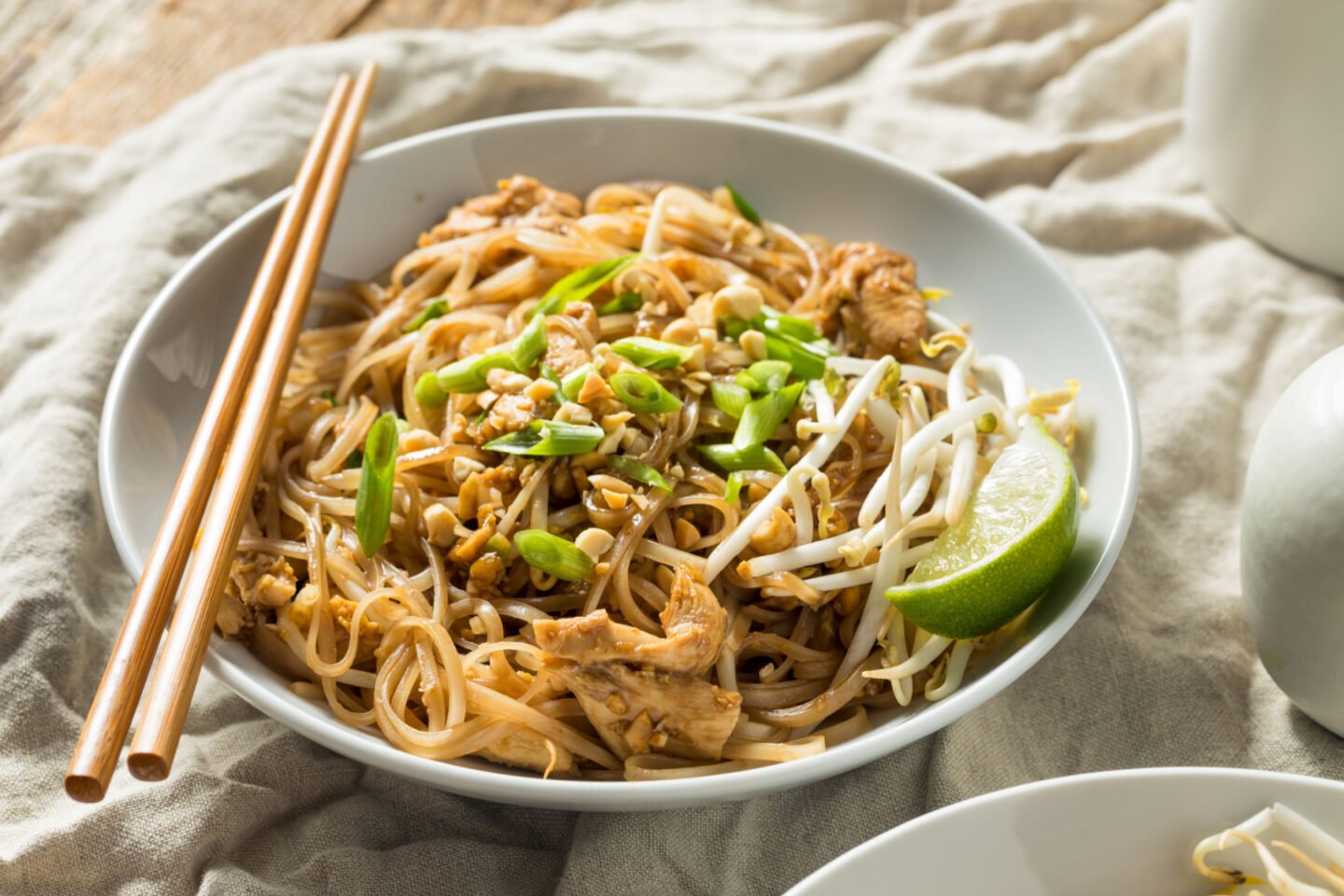
Pad Thai Vs Pad See Ew What Is The Difference? Tastylicious
The Battle Between Pad Thai And Pad See Ew; Taste And Texture; Ingredients; Cooking Methods; Conclusion; Noodles. Thin Rice Noodles In Pad Thai; Wide And Fatter Rice Noodles In Pad See Ew; Ingredients And Flavors. Tamarind-based Sauce In Pad Thai; Soy Sauce-based Flavor In Pad See Ew; Cooking Techniques. Stir-frying Method For Pad Thai; Wok.

Pad See Ew Vs Pad Thai Urban Bliss Life
Nutrients Present. Pad See Ew served with lime slices. Both dishes are rich in carbohydrates, but, from a tiny perspective, Pad See Ew has fewer calories than Pad Thai. Typically, Pad Thai contains around 350 calories per bowl. On the other hand, Pad See Ew has only 255 calories per bowl.

What's the difference between lo mein and pad see ew?
The sauces for these two Thai dishes are similar, with a few differences. Both include ingredients like oyster sauce, fish sauce, brown sugar, ginger, and garlic. But Pad See Ew is traditionally made with a dark soy sauce, giving it a rich umami flavor that has more depth than Pad Thai. It's this soy sauce that's the base of Pad See Ew sauce.
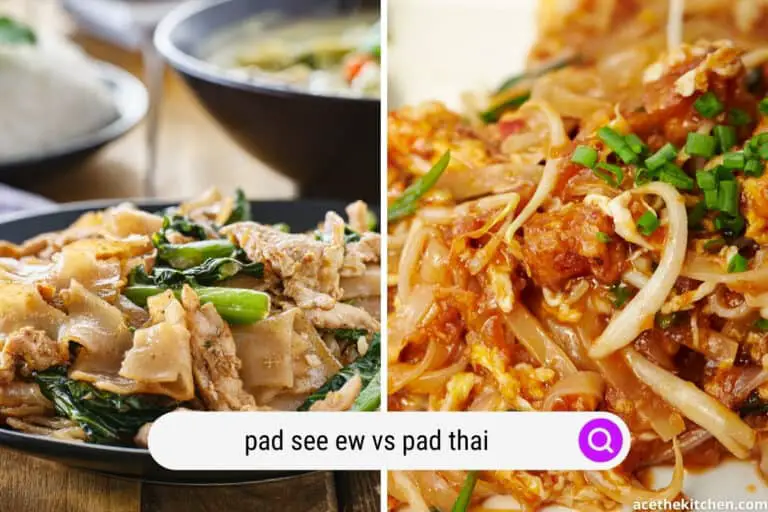
Pad See Ew vs Pad Thai What’s the Difference?
Sauce - Pad Thai is all about the tamarind whereas Pad See Ew takes its primary sauce flavor from soy sauce. Toppings - Pad Thai can have a variety of vegetables and proteins and is usually topped with crushed peanuts for an added crunch and a squeeze of zesty lime. Pad See Ew often boasts broccoli and greens and even a scrambled egg.
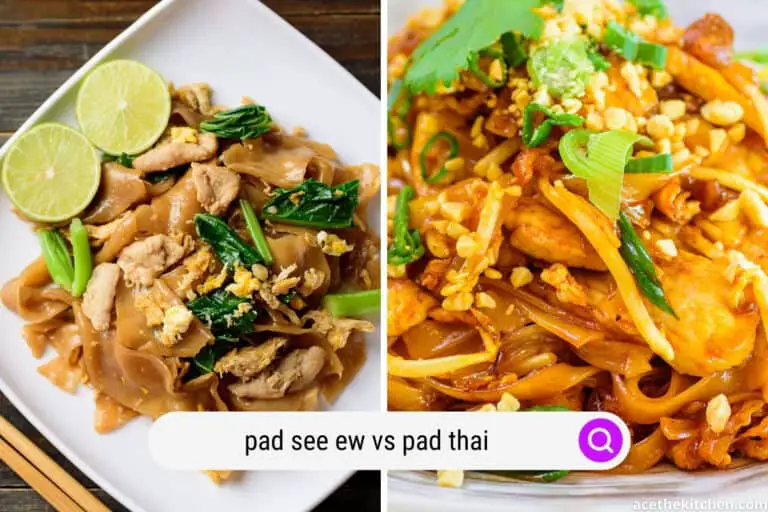
Pad See Ew vs Pad Thai What’s the Difference?
Pad see ew uses wider noodles, while Pad Thai rice noodles are smaller. Pad Thai is sweeter than Pad See Ew, which is saltier from the different types of soy sauce utilized in the dish. Those are the key differences, but there's still more to know about these delicious noodles. Side by side of Pad See Ew vs Pad Thai.
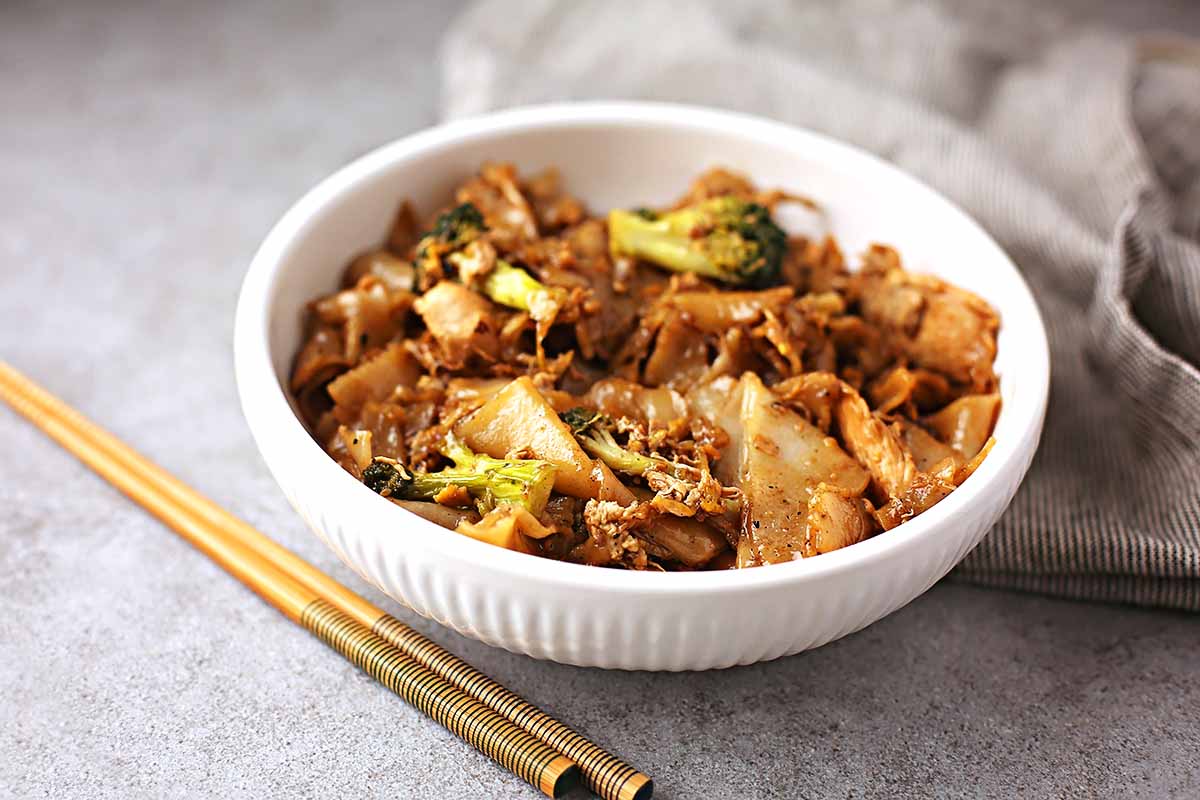
Pad see ew vs pad thai (Are They The Same?) Flavorful Home
Pad See Ew, also known as "stir-fried soy sauce noodles," is a delectable Thai dish that features wide rice noodles, succulent meats or veggies, and a rich umami sauce made primarily from soy sauce. Its velvety texture and savory flavors have made it a favorite among noodle enthusiasts. On the other hand, Pad Thai, known as the "national.
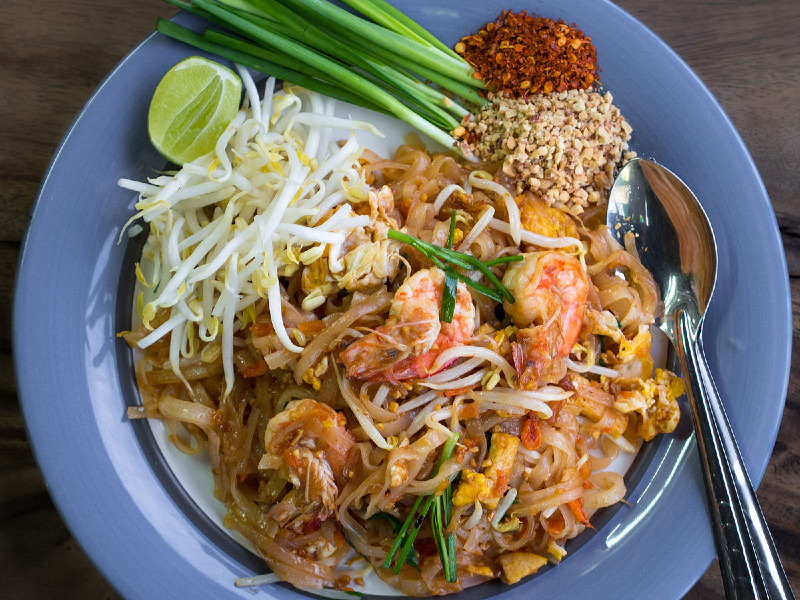
Pad See Ew vs Pad Thai What Is The Difference? Asian Recipe
Pad see ew is characterized by wide rice noodles and a savory-sweet sauce made with soy sauce, and is commonly served with Chinese broccoli and a protein selection. Pad thai, on the other hand, features thin rice noodles and a tangy, tamarind-based sauce. It's typically served with bean sprouts, peanuts, and proteins like shrimp or tofu.